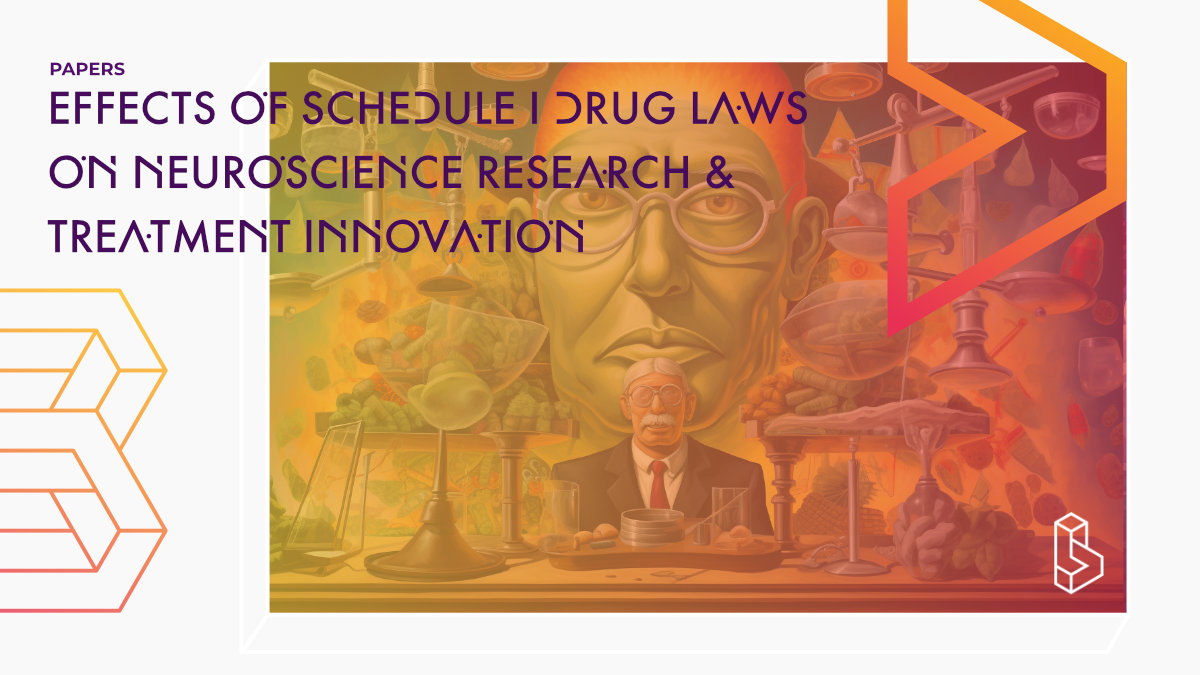This opinion article (2013) provides a scientific perspective on how Schedule I drug laws affect neuroscientific research using controlled substances. It shows how the legal approach to drug control has hindered research into the therapeutic potential of cannabis, stimulants, and psychedelic drugs. Moving these substances from Schedule I to Schedule II would make them more accessible for research. Still, this decision would require approval by a majority of United Nations Member States. However, preclinical research could be performed more quickly if a licensing category was created in the law, especially for scientists who need only small amounts of drugs.
Abstract of Effects of Schedule I drug laws on neuroscience research and treatment innovation
“Introduction: Many psychoactive drugs are used recreationally, particularly by young people. This use and its perceived dangers have led to many different classes of drugs being banned under national laws and international conventions. Indeed, the possession of cannabis, 3,4-methylenedioxy-N-methylamphetamine (MDMA; also known as ecstasy) and psychedelics is stringently regulated. An important and unfortunate outcome of the controls placed on these and other psychoactive drugs is that they make research into their mechanisms of action and potential therapeutic uses — for example, in depression and post-traumatic stress disorder — difficult and in many cases almost impossible.”
Authors: David J. Nutt, Leslie A. King & David E. Nichols
Summary of Effects of Schedule I drug laws on neuroscience research and treatment innovation
Many different classes of psychoactive drugs are controlled under national laws and international conventions. Still, the harms caused by the controls may be significantly overstated and may be less than those of some prescription drugs or even legal drugs such as alcohol.
Some psychoactive drugs can be used as treatments for medical conditions, such as pain and attention-deficit disorders. Others, such as cannabis, MDMA and psychedelics, are controlled more stringently.
In this Perspective, the authors discuss how the legal approach to drug control has hindered research into the therapeutic potential of cannabis, stimulants and psychedelic drugs.
Find this paper
Effects of Schedule I drug laws on neuroscience research and treatment innovation
https://doi.org/10.1038/nrn3530
Open Access | Google Scholar | Backup | 🕊
Cite this paper (APA)
Nutt, D. J., King, L. A., & Nichols, D. E. (2013). Effects of Schedule I drug laws on neuroscience research and treatment innovation. Nature Reviews Neuroscience, 14(8), 577-585.
Authors
Authors associated with this publication with profiles on Blossom
David NuttDavid John Nutt is a great advocate for looking at drugs and their harm objectively and scientifically. This got him dismissed as ACMD (Advisory Council on the Misuse of Drugs) chairman.
David E. Nichols
David E. Nichols is a researcher (specifically pharmacologist and medicinal chemist) at Purdue University (semi-retired in 2012). His psychedelics work has been ongoing since 1969.

